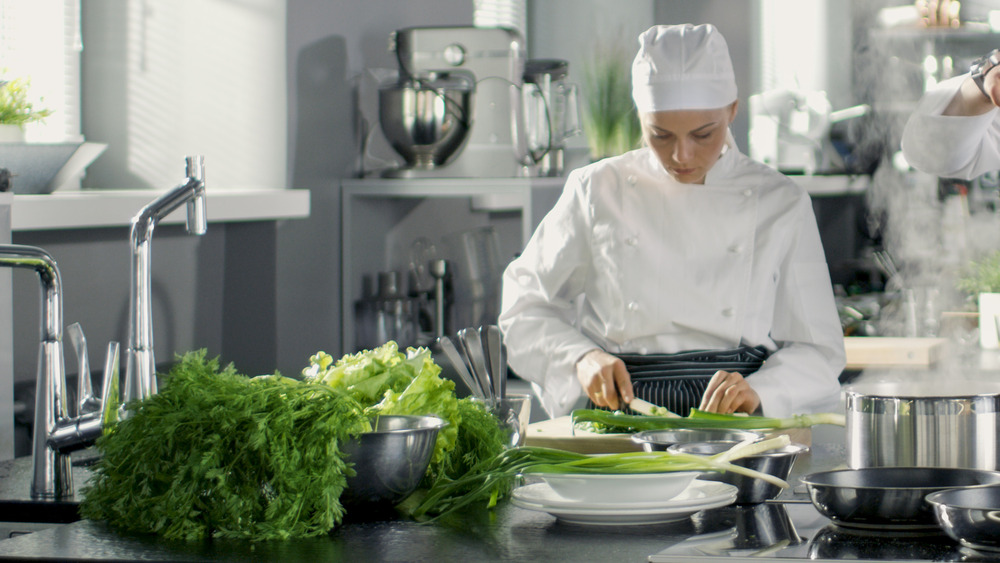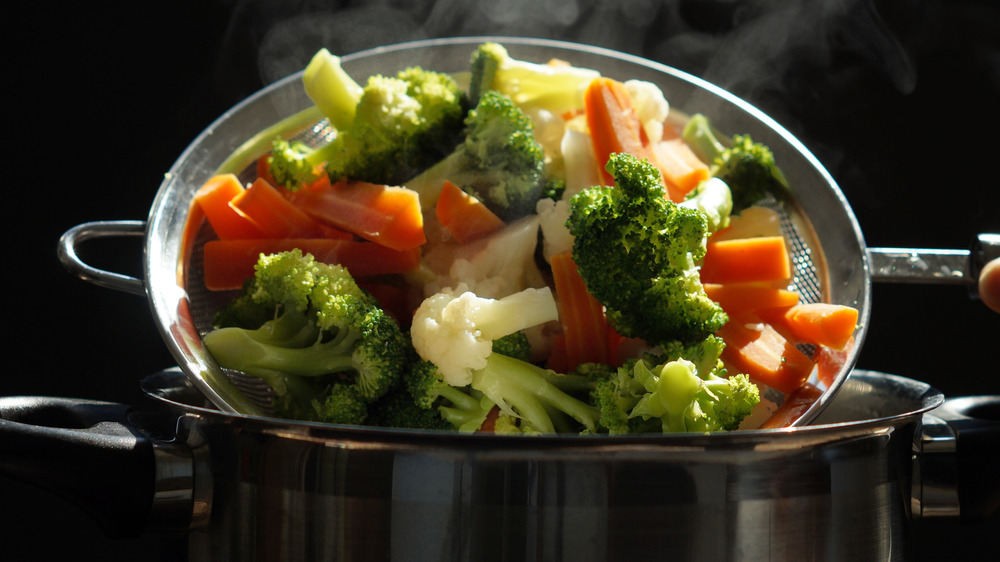Why You Might Want To Rethink Boiling Your Vegetables
When it comes to getting the best nutritional bang for your buck, it feels like you have your work cut out for you. Certain cooking methods can end up doing more harm than good, especially when it comes to locking in the nutrients of your ingredients. According to Health Digest, shorter cooking times lead to food maintaining more of its vitamins and minerals. This means that microwaving can guarantee that more positive nutrients stay in your food, while boiling and other longer cooking methods have the potential to sap the good stuff out of your vegetables.
Cooking methods that don't use water also guarantee to preserve the nutrition content of your meal. Roasting, grilling, and steaming all rank better than boiling when it comes to serving up a wholesome final product. Certain vegetables might even maintain better health benefits when eaten raw. For example, raw spinach provides more vitamin C, folate acid, riboflavin, and more when consumed raw, while the fiber and water count can guarantee to fill you up (via Health Digest). Just watch out, as many raw vegetables hide a variety of pesticides, bacteria, and even bug eggs on their outer layer, requiring a very thorough wash (via Health Digest).
What happens when you boil vegetables?
If you love the taste and texture of boiled vegetables, you have to come to terms with the fact that your end result will preserve fewer health benefits compared to other preparation styles. Boiling vegetables causes their vitamin C content to leech into the water. You can gain this nutrient back if you incorporate the boiled vegetable water into another part of your dish. Otherwise, you can wave goodbye to the vitamin when you strain your veggies. For a similar flavor and texture, opt to steam these ingredients to avoid any vitamin C loss.
When in doubt, you can't go wrong by eating vegetables. If you really want to get the most positive health results from these items, stick to raw veggies or cooking techniques that get the vegetable ready to eat in the quickest time possible (via Health Digest). With a bit of exploration, you might even discover a cooking technique that you never knew and end up wowing anyone who joins you for a meal.

